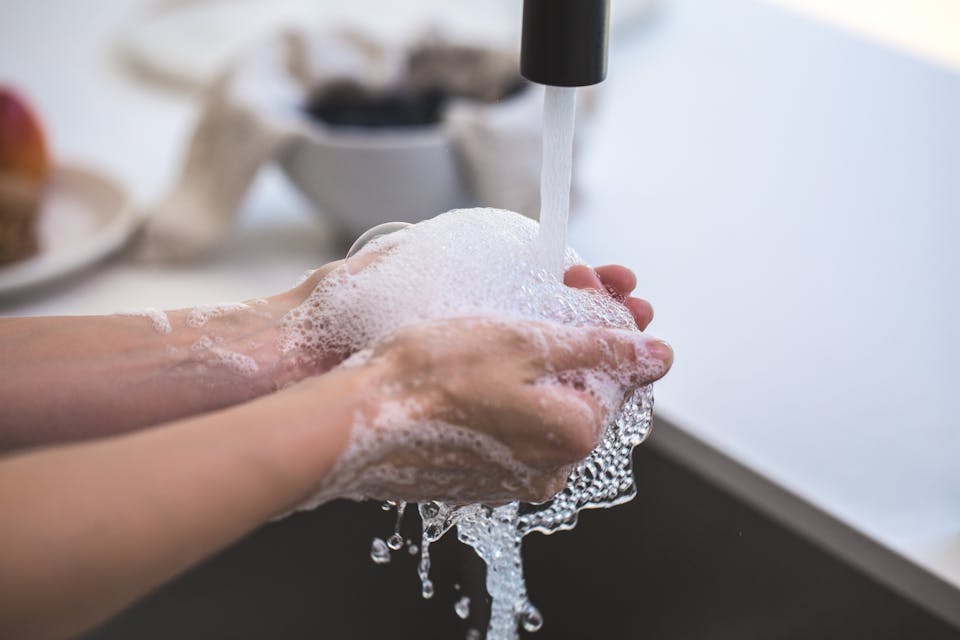We live in a world teeming with germs, bacteria, and other tiny microbes that are invisible to the naked eye. These microscopic organisms can greatly affect our health, and the best way to protect ourselves from the illnesses and diseases they spread is through cleanliness and good hygiene. Proper sanitation significantly improves human health. Sanitation has transformed society and increased our overall life expectancy. These eight facts will share fascinating and sometimes gross truths about the world of germs and cleanliness.
8 Hygiene and Cleanliness Facts
1. The practice of handwashing arose after the decline of public baths. (Source)
During the Ancient Roman era, bathhouses were lavish and luxurious, serving as places to socialize. While hygiene in this era was poor compared to our standards, the practice of handwashing began after public bathing popularity declined but before the invention of the fork. People ate with their hands, so washing before eating became customary.
2. Nebraska has the cleanest workplaces in America. (Source)
Nebraska has this honor due to low OSHA sanitation violations, low air pollution, a good ratio of janitors to workers, and state-mandated sick leave laws. These elements combine to create clean, safe workplaces.
3. Remote controls contribute to 90,000 deaths via infection each year. (Source)
TV remotes and remotes for other household objects spread staph infections. They carry more bacteria than toilet handles. A focus on disinfecting remotes could save lives.
4. Only 19% of people worldwide wash their hands after using the toilet. (Source)
We desperately need to increase this number because so many diseases and infections are spread through contact with feces. Every year, 1.8 million children under five die from pneumonia and diarrheal diseases. Many of these illnesses could have been avoided with frequent handwashing.
5. 70% of foodborne illnesses are a result of people not washing their hands. (Source)
Food is passed from the cook’s hands to the people eating it, and if you’re ordering takeout, servers and delivery drivers will come into contact with it as well. While restaurants require employees to wash their hands, workers often become less careful in a rush to keep up with orders when kitchens get frantic.
6. Your kitchen chopping board has 200% more bacteria than your toilet seat. (Source)
Let this be a reminder to sanitize your cutting board! Hands and knives often come into contact with this surface, and if it’s not cleaned thoroughly, food residue can accumulate and harbor bacteria.
7. Decluttering can improve your mental health. (Source)
Cleanliness isn’t only focused on disinfecting bacteria. Clutter and mess can make us feel stressed and irritable. Studies show that decluttering and minimalism can reduce stress levels and improve focus.
8. Over 1.5 billion people still don’t have sanitation services. (Source)
Access to sanitation isn’t equal. Many people in the world don’t even have access to private toilets. That’s millions of people with no choice but to defecate in street gutters, open water, or behind bushes, which greatly increases the spread of disease.
Featured image photo credit: Burst




